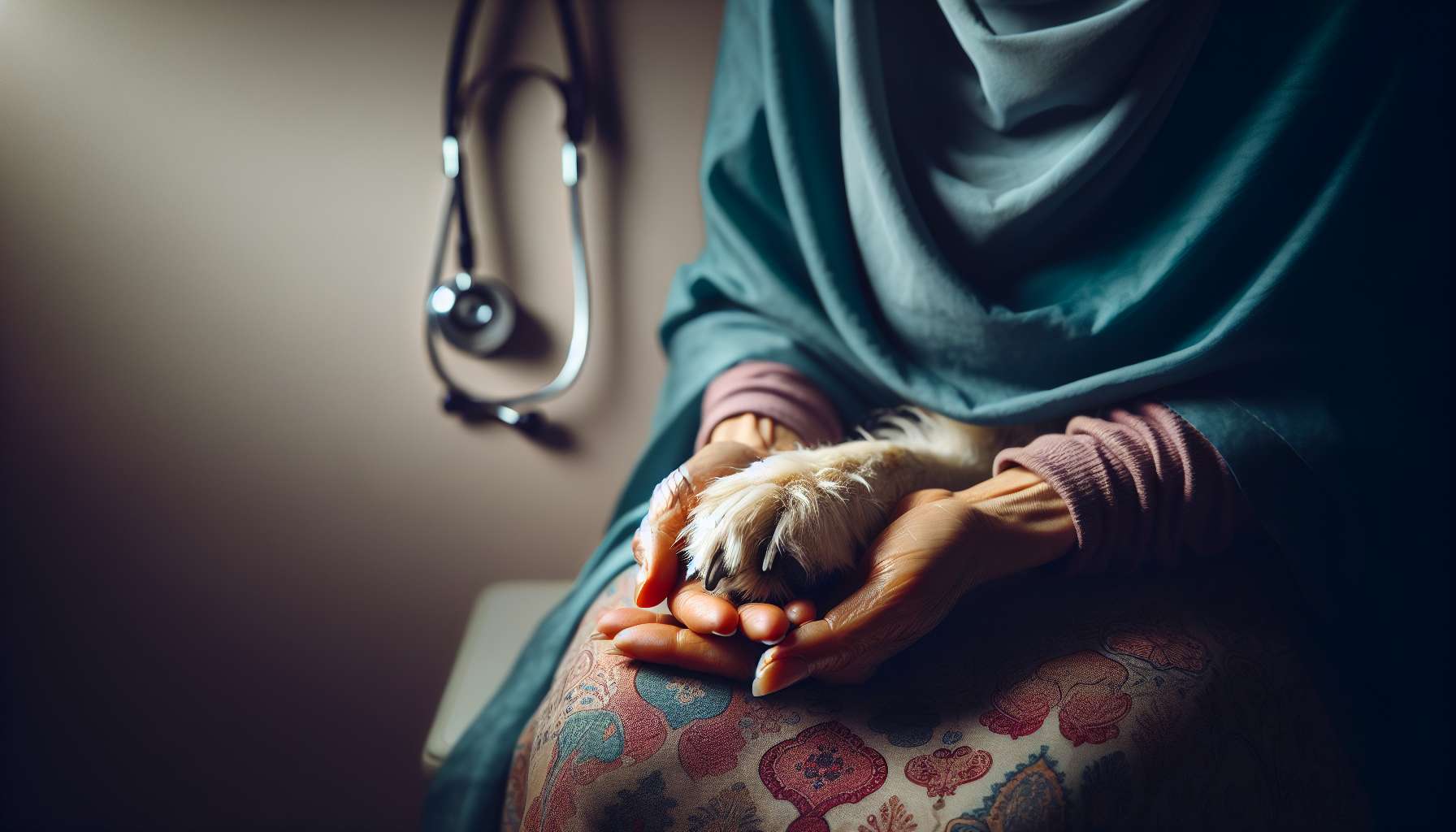Guilt is a common and particularly painful feeling amongst those who had to make the decision to euthanize their pet. Even when this decision is made to shorten the suffering of a sick or dying animal, it often comes with a profound feeling of betrayal and questioning. Having been “responsible” for the death of one’s companion, having to choose the moment and circumstances of his departure, is a heartbreaking ordeal that leaves lasting scars.
This guilt is linked to the particular responsibility that falls on pet owners. Unlike a human relative at the end of life, for whom the decision to stop care usually falls on a medical team, the euthanasia of an animal is most often decided by its master, in consultation with the veterinarian. So it is up to him to decide when the quality of the animal’s life has become too degraded, when its suffering has become unbearable. A decision all the more difficult to make, as the animal cannot express verbally its feelings and wishes.
Faced with this dire choice, many owners have the feeling of “playing God”, assuming a right of life or death over their companion. They fear to act too early, depriving their animal of moments of potential happiness. But they also fear to wait too long, unnecessarily prolonging its suffering out of selfishness or cowardice. This uncertainty is a source of immense guilt, which can persist long after the animal’s death. Many owners continue to wonder if they made the right choice, if they could not have done more to relieve their companion.
This guilt is often reinforced by the views of those around them, quick to judge without knowing the details of the situation. In a society that still struggles to recognize the reality of animal mourning, euthanasia is often seen as an easy way out, or even as an act of cruelty. Grieving owners are then reproached for their decision, accused of having “abandoned” their animal or not loved it enough. These criticisms, even when not openly expressed, feed into the feeling of guilt and obstruct the mourning process.
To help the bereaved cope with this guilt, it is essential to offer them a kind and non-judgmental space to talk. Encouraging them to verbalize their doubts, their regrets, but also the reasons that motivated their decision, can alleviate some of the burden on their shoulders. It is about helping them to reflect on their choice, to realize that they acted in the best interests of their animal, with love and compassion.
Reminding them that there is no “good” or “bad” time to say goodbye, that each situation is unique and that they are best placed to know what their companion would have wanted, can also be comforting. Many veterinarians testify that animals seem “ready” at the time of euthanasia, as if they felt their time had come and they accepted this decision made out of love.
Offering rituals to honor the memory of the animal and say goodbye can also help alleviate guilt. Being present during the euthanasia, holding their companion in their arms until their last breath, whispering words of love and gratitude, are all powerful gestures that allow one to feel at peace with their decision. Keeping a tuft of fur, a paw imprint, or a photo can also help to materialize this precious bond and feel less guilty about “abandoning” it.
Finally, it is important to normalize this guilt, to remind that it is an integral part of the grieving process and does not in any way mean that the decision was wrong. With time and proper grief work, it usually fades, giving way to a more peaceful sadness and the certainty of having given their companion the greatest gift: a gentle and painless death, surrounded by love to the end.
A kind and non-judgmental support is therefore essential to help the bereaved cope with this particular guilt. By helping them put words to their emotions, give meaning to their decision, and honor the memory of their companion, they are gradually freed from this burden and reconciled with their choice. A long and painful journey, but necessary to continue to move forward on the path of grief, with a peaceful heart.
Takeaway points:
– Guilt is a common and painful feeling among owners who had to euthanize their pet, as the decision is their responsibility and they feel like “playing God”.
– This guilt is reinforced by the fear of acting too early or too late, as well as the judgment of those around them who struggle to recognize the reality of animal mourning.
– To help the bereaved, it is essential to offer them a kind and non-judgmental space to talk, so that they can express their doubts and the reasons behind their decision.
– Reminding them that there is no “right” time to say goodbye and that animals often seem “ready” can provide comfort.
– Rituals such as being present during euthanasia or keeping a memento of the animal help to ease guilt by honoring its memory.
– Guilt is part of the mourning process and fades with time and proper support, allowing reconciliation with this decision made out of love to provide a gentle death to their companion.
👉 To download docx (Editable) file click here : Click here
👉 To download PDF file click here : Click here
👉 To download MP3 file click here : Click here








